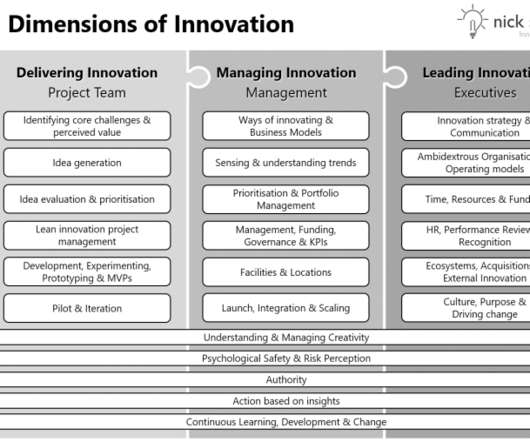Five Unicorn Scaleup Strategies
Leapfrogging
FEBRUARY 21, 2023
Unicorns are privately held companies valued at $1 billion or more. He’s the author of numerous books and an expert on how lean principles can be used to drive innovation. I encourage you to get it and embrace these strategies, whether you’re running a startup or in a big company.













































Let's personalize your content